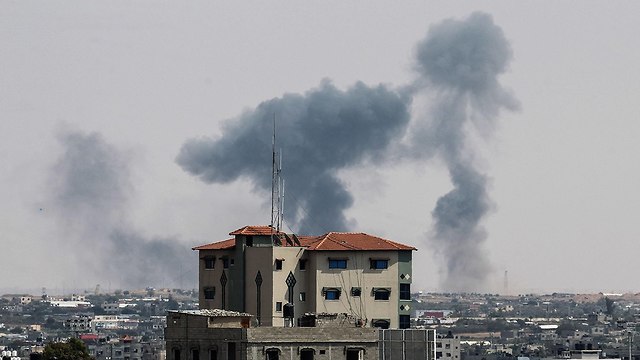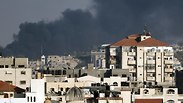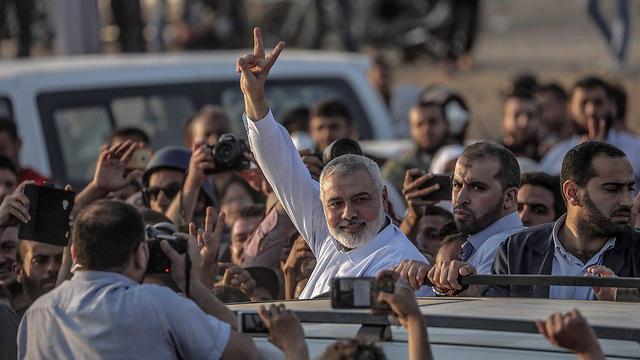
Needed: A different Gaza strategy
Op-ed: Instead of retaking Gaza, Israel should build a strategy based on three principles: Recognizing Gaza as an independent state, supporting any reconstruction activity carried out together with the Hamas government, and linking any financial aid to defined projects which will be carried out under strict supervision.
The reason is Israel’s disregard of the reality created in Gaza in the past 12 years. During those years, Gaza became a de-facto state for all intents and purposes. It has clear borders, an effective government, an independent foreign policy and an army. These are the exact characteristics of a state.
Moreover, the government in Gaza—the Hamas government—was elected in relatively democratic elections in 2006, and is without a doubt an authentic representative of the residents.

Our policy should be chosen solely based on interests. Israel has no territorial, economic or political interest in Gaza. All we have is a security interest—we don’t want them to fire on us for a long period of time, and we want to limit their development of new military abilities in the future as much as possible.
And what are the Gaza government’s interests? Granted, Hamas’ vision is to destroy the State of Israel. But lacking the ability to implement that, it is settling for a much more modest interest for now—to keep ruling Gaza. For that purpose, Hamas desperately needs international legitimization and resources to rebuild the collapsing infrastructures.
Is the conflict between our interests and those of Hamas unbridgeable? I don’t think so. Israeli officials say we are willing to offer financial aid to Gaza’s poor residents, “who have been taken hostage by Hamas.” That’s a somewhat sanctimonious statement. First of all, Hamas isn’t al-Qaeda or ISIS, but a political movement supported by most of Gaza’s residents. Second, and more importantly, Gaza can’t be rebuilt behind its government’s back.
At the end of Operation Protective Edge, nearly four years ago, it was decided that an international committee would be established to handle the strip’s reconstruction. It was also decided that the move would be led by Egypt and that the money for this important goal would be given to Palestinian President Mahmoud Abbas in Ramallah. Considering the fact that neither Egypt nor the Palestinian Authority is interested in rebuilding Gaza, they basically let two foxes guard the henhouse.
It’s time to sober up and build the strategy vis-à-vis Gaza based on three principles. First, it’s time to recognize that it’s an independent state. We’re not the ones who created the internal Palestinian split, so we’re not the ones who should be paying a (security-related) price to end this split.
Second, Israel would support any activity aimed at rebuilding the water, electricity and sewage systems and the homes in Gaza, and wouldn’t object to this activity being done publicly and directly with the Hamas government. About two years ago, Turkey suggested a quick and efficient solution for part of the electricity problem: Placing a ship with a huge generator off the Gaza coast, which would be connected to Gaza’s electricity system and nearly double the electricity production. Israel opposed the plan for political reasons. Why?
Third, any financial aid to Gaza would be linked to defined projects, and the Hamas government would have to comply with strict supervision demands.
If such an activity is implemented, if the harsh humanitarian reality improves, if the Hamas government gains assets which it will be afraid to lose in the event of a military flare-up, the tensions will drop.
We should remember that from 1948 to 1967, all Arab states were committed to the idea of destroying Israel, yet the armistice commissions managed to guarantee a long calm, most of the time, in most areas.
Israel should therefore choose between the option of being right and the option of being smart. The second possibility is more worthwhile, definitely more than the opposite way suggested by different officials in the past two days: To reoccupy Gaza.
Major-General (res.) Giora Eiland is a former head of Israel's National Security Council.


















